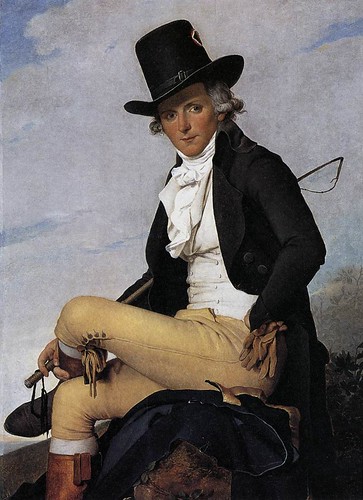Still time to win Lisa Lickel's Meander Scar! Click here to enter the giveaway!Today's assessment is courtesy of Charlotte. She's writing about Jason*, her hero in a historical mystery set in England in the 1700s.
Jason's father assumed both his sons would be geniuses after him, but only Jason's older brother, Linus*, succeeded. Although not as dumb as his family (or he himself) perceived him to be, Jason was a dismal disappointment to his father. When he couldn't win his father's approval through intellect, he tried to do so by always being a gentleman and striving to do the honorable thing. That doesn't impress his father, but his godfather gives him a job as his private secretary. Now, at 24, he's given another opportunity to to obtain his father's approval--buying it. Linus's future success in the Royal Society hinges on a private expedition that Linus or his father don't have the means to fund. If Jason can solve a viscount's mysterious problem, then he'll be given a nice bonus payment.
It's during this quest that Jason meets Brina*, a rival in need of help herself. Being a true gentleman, he has to help her even though it is a conflict of interest to g

aining the money. The two end up gaining forces when it becomes apparent that there is a troublemaker on the loose. The hitch is that Brina is a con artist.
The bones of Jason's dilemma is this: To stop a man who is violent enough to kill someone, Jason must work with a woman who cheats people for a living. Jason feels inadequate to the task of catching one without the help of the other. Quite the quandary!
* Names have been changed to protect the fictional.Charlotte has given me a couple of questions that I'll split up to make it easier on myself:
Q1: What could enable this straight-laced gentleman, who places a premium on honor and propriety, to befriend a woman he knows to be a swindler...and enjoy himself in the process? (Jason is not religious and Brina is not a romantic interest for him.)Ah...in essence, you are asking why would opposites attract, and I don't mean romantically, even though that's the usual connotation when that phrase is used. What is it about people who are different from us? We hold some strange mixture of fascination/distaste with them, and that's where I imagine Jason is when he meets Brina.
Here is a woman who actually does things he despises, that go against his code of honor. Things that have been ingrained in him never to do. Yet here is a woman who holds to know ethics at all. Could Jason's fascination with such a creature overcome his distaste for what she does? How often to we wish we knew what it was like to be like so-and-so? Think of all the high school kids who just want to be cool or popular. When I was in college, I had never had a sip of alcohol. Inside, I wanted to know what was so special about drinking myself silly at a bar.

Perhaps Jason just wants to connect with that part of his psyche that wishes he could get a little crazy...do something outrageous--mean even--just for the heck of doing it and saying "to heck" with his code. Brina touches that part of Jason that he keeps caged, deep within...and part of him is probably scared the animal will unleash...and it's that dance between fear and uncertainty he probably finds enjoyable.
Q2: How feasible is it that Jason could have an IQ past 130 yet believe himself to be intellectually mediocre?The answer to this question lies within Jason himself. I've counseled absolutely stunning young girls who only saw ugliness in the mirror because of some cold-hearted comment made to them by a jealous friend, worried parent, or ex-boyfriend that scarred their self-confidence forever. Whatever Jason believe inside about his abilities is the gospel truth as far as he's concerned. It's his internal mantra...something he would repeat over and over to himself.
Your job as an author is to make that belief rock-solid, and from the looks of it, you've got it nailed why he would feel this way. If his father shot off disparaging comments about his intellect, or told him what a disappointment he was, or asked him why he couldn't be more like Linus...any of these things would instill an inferiority in Jason, and he's probably latch on to intellect as the core issue. You can bring him out of this "stinkin' thinkin'" (which is a cognitive therapy term...also used in 12-step recovery) by the end of his character arc by having him come to the conclusion that there are more ways to be smart than just book smart. I'll leave it to your imagination just how that could happen.
Q3: What other long-term effects might his upbringing have?You wrote that Jason's father "has a touch of the Svengali about him." I must confess, I'd never heard that expression before and had to look this one up. Trusty Wikipedia gave me this generic definition: "a person who with evil intent manipulates another into doing what is desired. It is frequently used for any kind of coach who seems to exercise an extreme degree of domination over a performer."
So if Jason grew up with this type of father, I imagine he always felt he could never be good enough for him. Probably a bit of a love-hate relationship. I've s

aid this before, but men in particular crave "the blessing" from their fathers. This blessing can come in approval, quality time, affirmation...you name it, as long as it's passed on. Jason would be no different. He'd likely feel left out, of course, since it apparently seems all the blessing went to Linus.
Of course, I should like to know what his mother's role in all this is. Is she living? Divorced because she couldn't stand the dad? Died when Jason was born? Who is the mother-figure for him? A little boy really does need the loving nurture of a mom.
The rub in the equation lies in this: Where is he going to pick up that there is a different way to living than what his father (and perhaps his brother, by extension) have? If that's the role model he has, then where would he even learn to care about being honorable? You mentioned a godfather, so I'm hoping that character will be the one to instill in him how important this is? Or perhaps he met someone he looked up to in grammar school?
I'd think about this...because it also connects to why Jason thinks being gentlemanly will win over his father. If his father doesn't seem to value that, then the reasoning is a little off...but then again, people do crazy things for approval. But maybe you could write in a scene showing the father's emphasis on being a part of the
ton or how intellect and gentlemanly know-how/honor are like two sides to the same coin that will bring success. Give the reader a reason to believe Jason will go to all this trouble...make them think it
might work and the father will throw his poor son a bone.
Q4: What might Jason's relationship with Linus (two years older) be like?Linus. Ah. Could be the bane of his existence. Maybe he's even the one person Jason has to struggle to just be decent with, the one person Jason knows he should love, but can't bring himself to really feel that love? Since you didn't give a whole lot of info on Linus, I can only speculate

. It seems Linus and Jason have little in common besides the same blood running in their veins. But younger brothers have been known to idolize older brothers and want to be just like them. Depending on how verbal dad is about Jason's shortcomings, and comparing him to Linus all the time, that could effect Jason's feelings about his brother.
I'm reminded of the two brothers in the Lord of the Rings trilogy, Boromir and Faramir. Denethor (the dad) was constantly comparing Faramir to his great warrior brother, Boromir. It's so wrong...and so sad. Even Boromir got upset about it to his dad. If Jason's dad is anything like this...than brotherly bonding will definitely suffer.
Well, that's all I've got for now. This was long...sorry for that, but hopefully you got something out of it being a bit meatier. Every once in a while I really get carried away. :) Drop any questions in the comments section.
This service is for fictional characters only, so any resemblance to real life examples is entirely coincidental. Any other fictional character assessment questions can be directed to charactertherapist (at) hotmail (dot) com.

 Amanda Flower's new India Hayes Mystery, Maid of Murder, releases this month, and you don't want to miss it. I'm such a fan of the now not-just-dead-but-beaten-to-a-pulp genre of "chick lit," but Amanda's book takes chick lit, adds a whopping dollop of cozy mystery and a dash of romance for a recipe that makes for just plain entertaining reading.
Amanda Flower's new India Hayes Mystery, Maid of Murder, releases this month, and you don't want to miss it. I'm such a fan of the now not-just-dead-but-beaten-to-a-pulp genre of "chick lit," but Amanda's book takes chick lit, adds a whopping dollop of cozy mystery and a dash of romance for a recipe that makes for just plain entertaining reading.



































